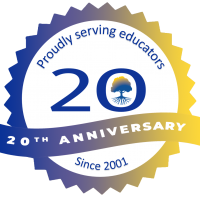Using Poetry Writing to Teach English
Poetry can be a great tool to use to teach English to our students. In this session, we first discuss why poetry writing is a useful and motivating activity for English language students of all ages, levels and backgrounds. We look at how to structure a poetry writing lesson in order to fully engage students in the process. Finally, we identify the structure of different types of poems that students can write. At the end of this session you will be able to effectively integrate poetry writing into your classes.

